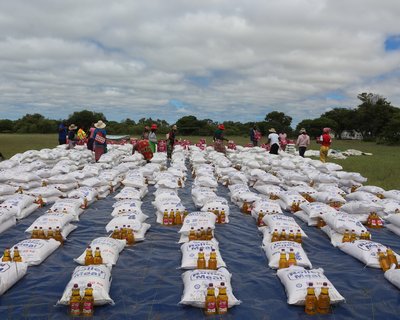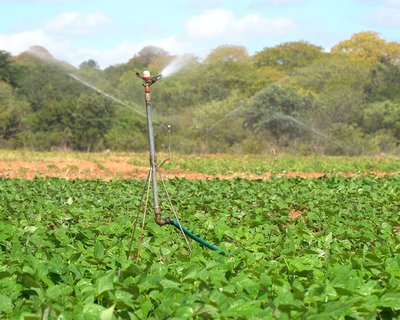Donate today
The Growing Crisis Appeal
Right now, extreme drought is causing a Growing Crisis across Southern Africa. The rains that farming families once relied on are no longer on their side. In Zimbabwe alone, 7.6 million people have been pushed into hunger. There are no quick fixes. But with your support, there is a growing solution.
Watch this special report featuring Fungai and Elizabeth – lives and livelihoods are at risk
"Climate change is no longer just a story. It’s a reality being lived every day."
Daud, Oxfam in Zimbabwe team member
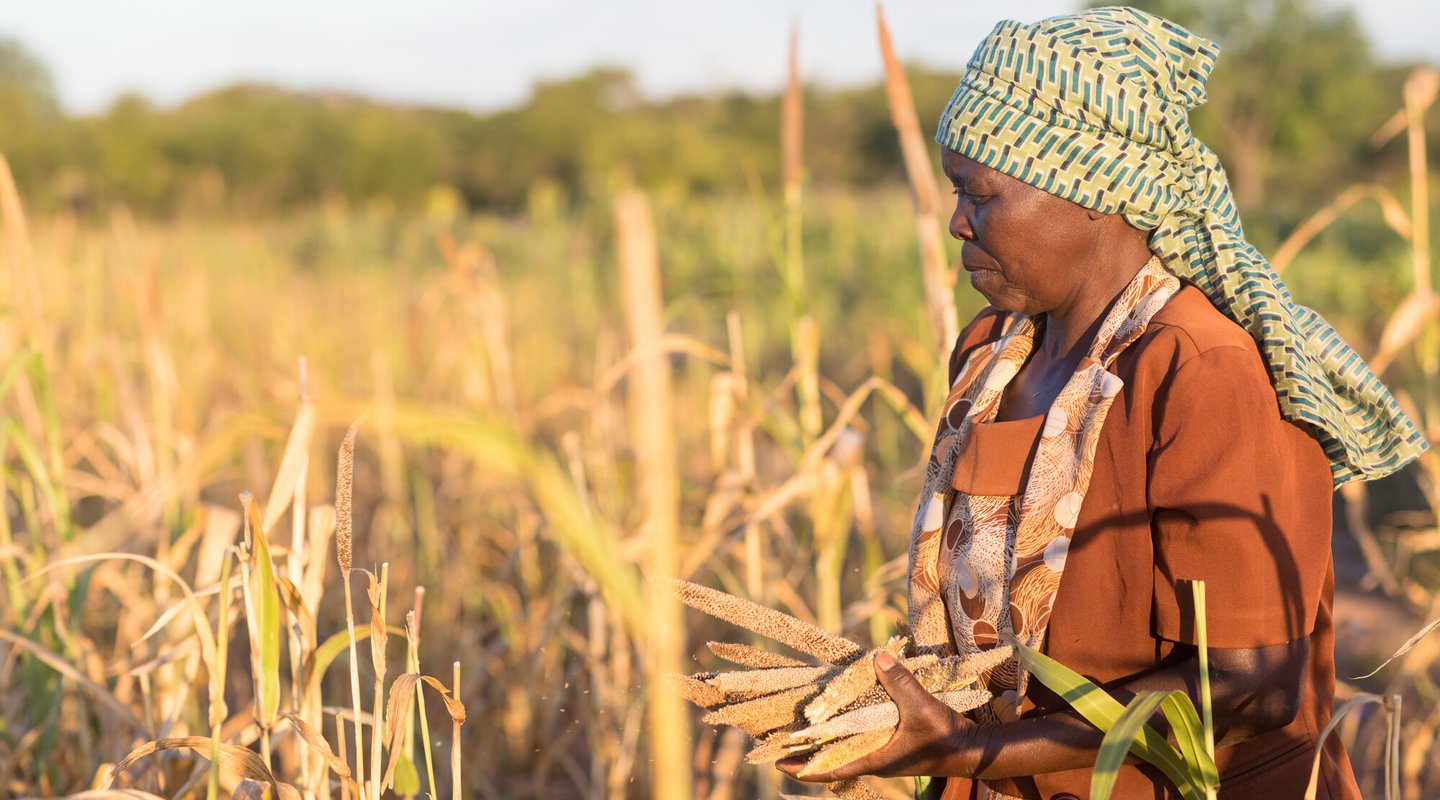
Photo: Loliwe Phiri / Oxfam
Join Fungai
Gutu District, Zimbabwe.
Fungai is a smallholder farmer and lives in Gutu, one of the regions worst affected by changing weather patterns.
“All our crops died. We didn’t harvest anything.”
Her harvests are her source of food and income for her whole family. But she is seeing the crops she has relied on for decades disappear and die.
“This drought season has been very difficult for us. We don’t have anything to eat … We were supposed to get enough yield to last us the whole year from what we had planted. Unfortunately, it did not rain.”
For Fungai and many of her neighbours, this is the new reality. The rains they once could depend on are no longer on their side.
“Last year was better because we managed to harvest a bit, but now we don’t have anything. We want water the most … so that we can survive as a family. So that we can farm and harvest the little yields that we can, with my children…
“If we had access to irrigation we could have won. Our crops would have been like those who have irrigation.”

Photo: Loliwe Phiri / Oxfam
Join Elizabeth
Gutu District, Zimbabwe
Elizabeth is a smallholder and community volunteer. She’s seen climate change destroy her source of food and an income — and she’s fighting back.
“I’m a single parent and have two children. My son wants to be a doctor when he grows up, my daughter is still young … We usually grow small grains which are suitable for this region [but] if there is little rainfall, automatically we have a drought and we are in poverty.”
The savings club Elizabeth now runs means that women in her village can take out loans to buy more food and seeds, invest in livestock or start small businesses. She received the training, resources and advice to get started from local Oxfam partner Aquaculture Zimbabwe.
“We have got savings clubs that enable us to save money. We use this money so that we can buy food, so that we can survive.”
These savings clubs are community-owned safety nets that cushion the blow of disaster.
These savings schemes, combined with emergency food and climate-resistant farming techniques to make a powerful difference. But there is more to be done. As Elizabeth explains,
“If I had the opportunity to be in an irrigation scheme, I would be able to have food. The food would sustain me and my family for the whole year.”

Photo: Loliwe Phiri / Oxfam
Join Ottilia
Gutu District, Zimbabwe
Ottilia is a farmer who is already part of a solar irrigation project in the Ruti district of Gutu. This innovative approach harnesses the plentiful power of the sun to pump water from a nearby reservior to crops that would otherwise be destroyed. They are turning sunshine into water.
For Ottilia, this water has already been the difference between a thriving harvest and hunger.
“[Before] I struggled with many things, and I could not afford a packet of sugar … Hunger is now a thing of the past in my house, and I am supporting a lot of people as a result of the irrigation. After selling my produce, I can even afford to buy boxes of groceries and store them in my house. My grandchildren no longer lack like other children.”
The transformation is so dramatic it is difficult to describe. What were once dry, dead fields are now full with lush, green, healthy crops! Ottilia is now leading the way for other households.
“People are complaining about hunger elsewhere … It is my wish to set up another irrigation scheme from our savings...”
Your gift today could help provide
Nicole Mukibah, a Monitoring, Evaluation, Accountability and Learning officer for Oxfam, in Gutu District, Zimbabwe. Photo: Loliwe Phiri/Oxfam.
While there are no quick fixes to the climate crisis, the CARL project is a growing solution. And your donation today can make a massive impact in Zimbabwe and beyond.”
Nicole Mubikah, Monitoring, Evaluation & Learning Lead, Oxfam in Zimbabwe (pictured)
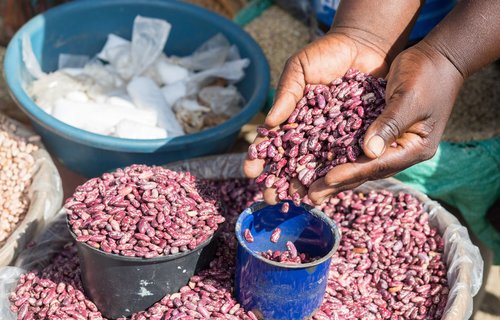
Defend against hunger
Emergency food packages provide a vital line of protection against hunger to families when their crops are destroyed. In the last six months alone, local partners have delivered monthly food packages to 5,918 vulnerable farming families across three districts. And by switching to more traditional crops that require less water — such as sorghum and millet — farmers are adapting to climate change, protecting their food supplies, and defending their livelihoods.

Build a vital safety net
Savings clubs are providing a vital financial cushion for families facing drought and rising food prices. By pooling their resources, communities can invest in their futures — buying essentials, covering school fees, and ensuring they have enough to eat when times are tough. Elizabeth received the training, resources and advice to get started from Oxfam local partner Aquaculture Zimbabwe.
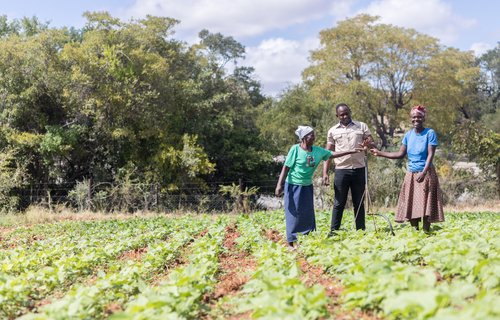
Turn sunshine into water
Farmers who are part of the solar-powered irrigation scheme in Gutu can now water their crops all year round, freeing them from the constant uncertainty of unpredictable rainfall. The system draws water from a nearby reservoir and uses sunlight for energy, replacing the need for costly electricity or polluting diesel pumps. It’s a smart, sustainable solution — designed together with local communities to work with the land, not against it.
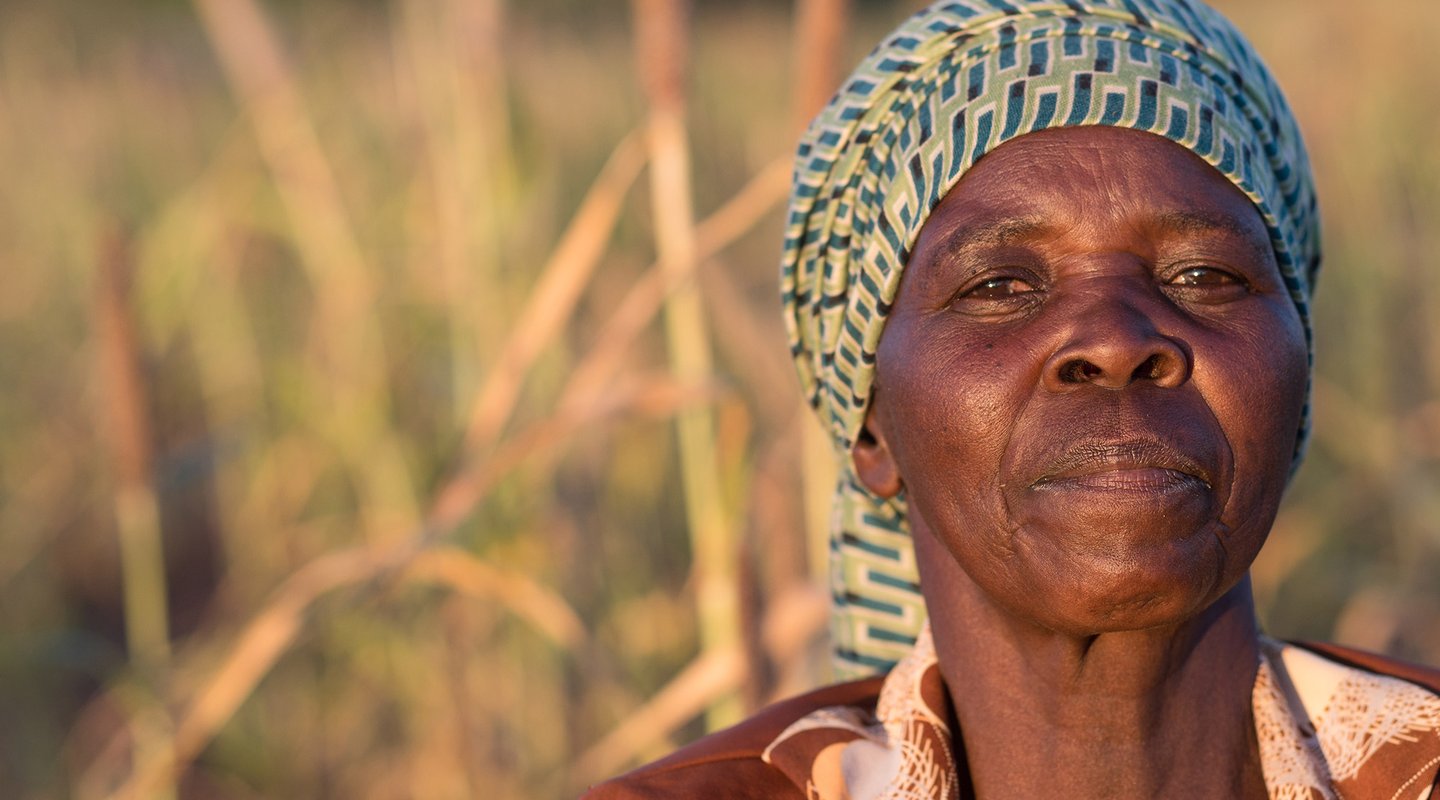
Photo: Loliwe Phiri / Oxfam
